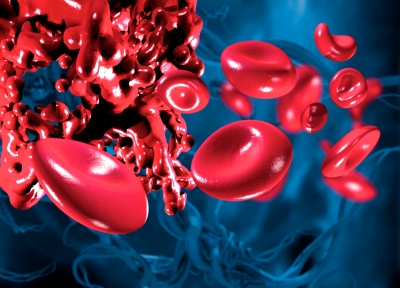
Omeros has reported positive data using OMS721 in ex vivo studies of endothelial activation relevant to the pathophysiology of human atypical haemolytic uremic syndrome (aHUS), a form of thrombotic microangiopathy (TMA).
OMS721 is the company’s lead human monoclonal antibody targeting mannan-binding lectin-associated serine protease-2 (MASP-2), the key regulator of the lectin pathway of the immune system.

Discover B2B Marketing That Performs
Combine business intelligence and editorial excellence to reach engaged professionals across 36 leading media platforms.
TMAs are a family of debilitating and life-threatening disorders characterised by multiple thrombi (clots) in the microcirculation of the body’s organs, most commonly the kidney and brain.
The positive OMS721 data in serum from patients with aHUS has been reported from studies conducted in support of the clinical evaluation of OMS721.
Clinical evaluation of OMS721 has been performed by Dr Giuseppe Remuzzi and colleagues Marina Noris and Miriam Galbusera at the Mario Negri Institute for Pharmacological Research in Bergamo, Italy, and the Clinical Research Center for Rare Diseases ‘Aldo e Cele Daccò’ of the same Institute.
The experimental model is based on the finding that serum samples from aHUS patients cause complement deposition and thrombus formation when incubated with human microvascular endothelial cells.

US Tariffs are shifting - will you react or anticipate?
Don’t let policy changes catch you off guard. Stay proactive with real-time data and expert analysis.
By GlobalDataAccording to Omeros, the data demonstrated that OMS721 significantly inhibited complement deposition in the model using serum samples from aHUS patients obtained during the acute phase of disease and during remission compared with untreated controls.
Experiments assessing the effects of OMS721 on thrombus formation are planned.
Omeros believes that it may be possible to deliver MASP-2 antibodies systemically, especially OMS721, which is designed to be self-administered by subcutaneous injection.
Omeros chairman and CEO Dr Gregory A Demopulos said: "These data indicate that the lectin pathway, and MASP-2 specifically, are involved in the pathophysiology of aHUS, one of the devastating TMAs.
"We look forward to initiating enrollment next quarter in our OMS721 Phase 2 trial in patients with aHUS and other TMAs, and we hope to be able to share the results later this year."
Omeros controls the worldwide rights to MASP-2 and all therapeutics targeting MASP-2, and reported positive results in February 2014 from its OMS721 Phase I clinical trial.
Earlier in March 2014, the company announced submission of an investigational new drug application to the US Food and Drug Administration to initiate a Phase II clinical trial in patients with TMA, including patients with aHUS.
Image: MASP-2 is generated by the liver and is then released into the circulation. Photo: courtesy of freedigitalphotos.net.





